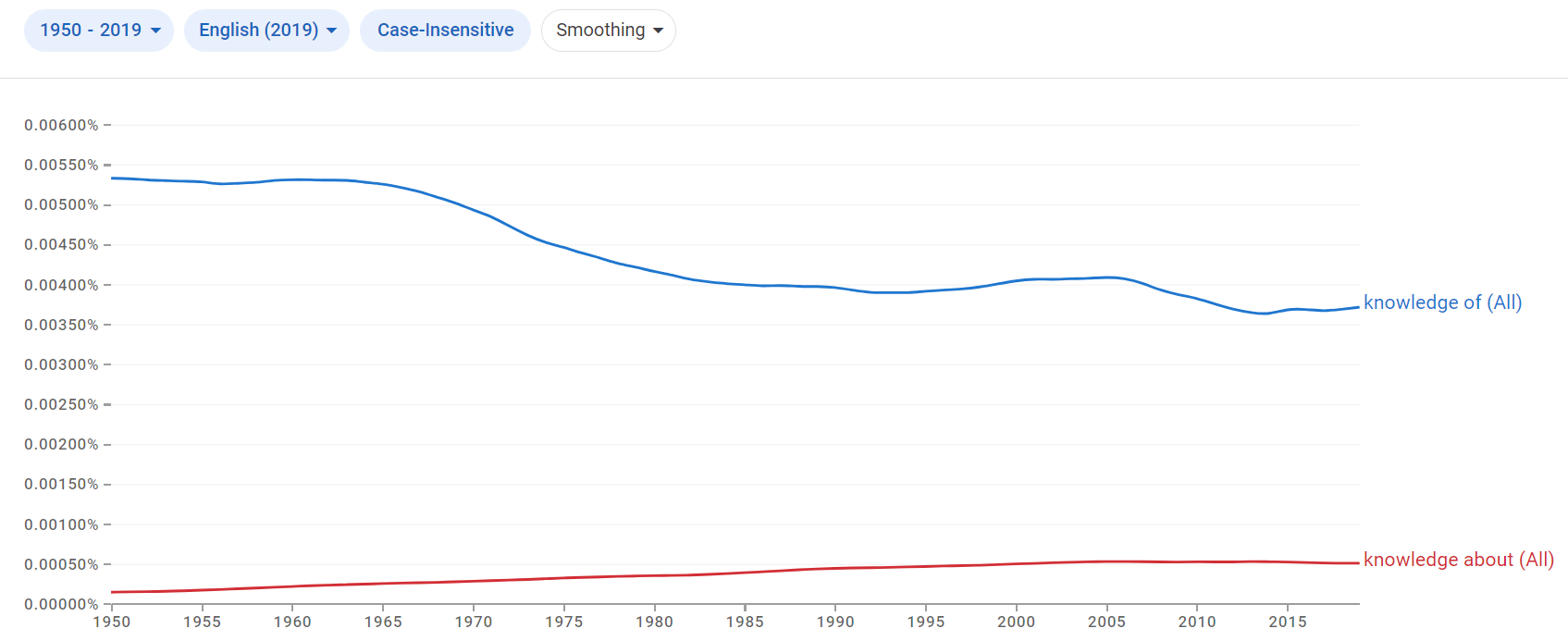We normally use the preposition "of" after "knowledge" . "About" is much less common. Don't use the prepositions "on" or "in".
We normally use the preposition "of" after "knowledge" (e.g., "knowledge of American history"). "About" is much less common (e.g., "knowledge about human rights"). Don't use the prepositions "on" or "in".
Peter denied all knowledge of the claims against him.
She reflected on the limits of our knowledge about life and death.

Source: Google Books Ngram Viewer
As mentioned above, we don't use the prepositions "on" or "in" after "knowledge".
Olivia has good knowledge of/about Spanish history.
Olivia has good knowledge in/on Spanish history.
But you can use "in" to introduce the prepositional phrase "in the knowledge that..."
Walter smiled, secure in the knowledge that he was right.
In everyday English or less formal situations, people frequently say that somebody "knows about something" rather than "has knowledge of/about something"
Sarah didn't know much about Renaissance art.
Remember, "knowledge" is an uncountable noun and cannot be used in the plural. Don't say "knowledges".
It's important to strengthen our knowledge.
It's important to strengthen our knowledges.
We'll add here that it's incorrect to say "a knowledge" by itself; however, you can use "a" in the pattern "a knowledge of something".
Education gives us a knowledge of the world, and not just a curriculum.

